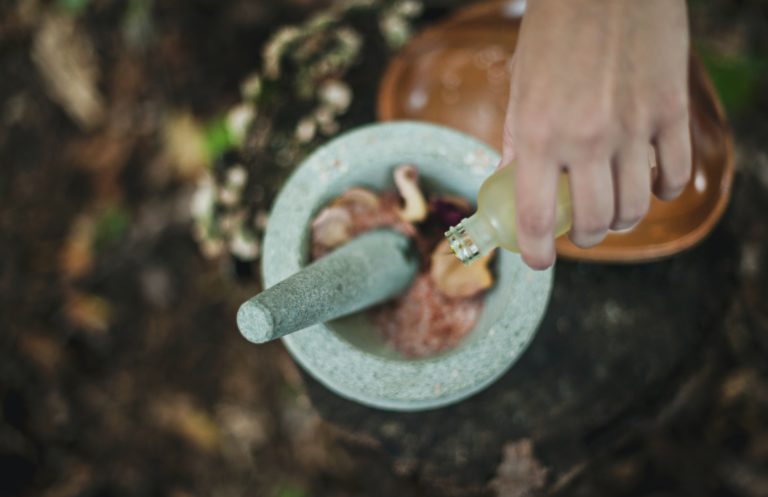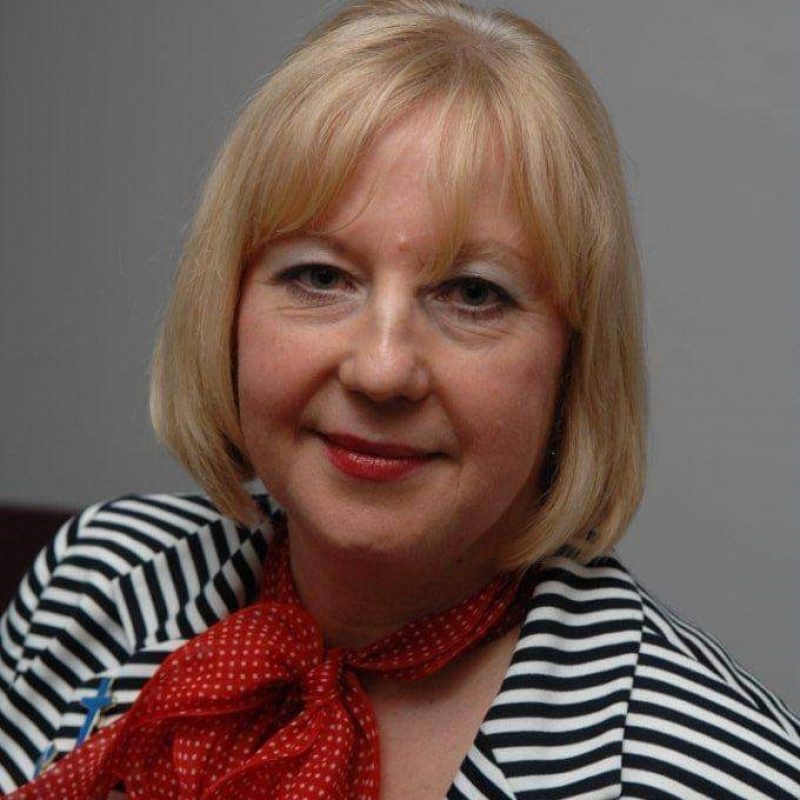
The Future of Natural Beauty Products: A Conversation With Judi Beerling
Do you know what you’re putting on your body? And do you know where the ingredients come from? We spoke to Natural Cosmetic Formulation Expert, Judi Beerling, via video call for insider insight into the world of natural beauty products…
From the charming English countryside of Kent, Judi Beerling works from her ‘boutique’ laboratory putting new natural ingredients to the test. A highly experienced cosmetic scientist, Judi helps everyone — from world-leading brands to small, green startups — to develop plant-centred, environmentally-sustainable formulas.
Why should we use natural beauty products?
“As a chemist, it’s not just about ‘synthetic’ versus ‘natural’ ingredients. It’s about the power of plants.
There’s such a richness in nature — and potential downsides to synthetic ingredients, like retinol. If you can use a plant with retinol-like activity but with more skin friendly properties and fewer side effects, then it’s much more preferable. I would choose that!”

Judi Beerling – Natural Cosmetic Formulation Expert, pertechassociates.co.uk
Just how powerful are plants?
“We’re discovering natural ingredients that don’t just have benefits like reducing wrinkles, but have a measurable effect on people’s brains.” Neurocosmetics are a new wave of cosmetics, connecting people’s emotions with their skin.
I express my amazement. “It’s not just marketing hype.” She assures me, “If you read the science, you can actually measure an increase in certain brain waves, nerve activity or measure a user’s mood.
Neurocosmetics don’t just affect the skin — but the central nervous system, too. You get to understand the science behind why somebody says they love a product, or feel that they look so much better using it. In the future, beauty products won’t just be about the physical.”
Where is the future of ‘natural beauty’ heading?
“Natural doesn’t always mean sustainable. If you’re growing fields and fields of plants for cosmetics, then it may be competing with land needed for food. You also run the risk of a bad harvest affecting supply, or big companies buying up particular crops and smaller companies struggling to source them.”
“These days, there’s a lot of movement into the upcycling of ingredients using the waste from the food industry. The beauty industry is really heading towards using natural techniques that need a lot less water, land and energy to produce their ingredients. We’ve come a long way from natural for natural’s sake. I think we’ll see a lot more of these, sustainable ingredients very soon”. For consumers themselves, social media has a huge role to play in shaping the future of beauty products.
Cosmetic scientists are now becoming the new beauty influencers. Not only is the public increasingly compelled by the idea that their products are gentle on the earth, they’re starting to engage with the science behind beauty ingredients and how they impact the skin. Influencers like Michelle Wong are changing the game, and empowering consumers to see past the seduction of marketing.
What’s your favorite natural beauty ingredient?
“It’s like picking a favourite child!”, she laughs, “Though new is always exciting. There’s always the latest batch of ingredients I’m excited to try.”
“Primarily, I’m most interested in upcycled ingredients. So, creating beauty ingredients from something that would otherwise go to waste. There’s a range of oils and exfoliants from a company called Full Circle, for example. They take waste from the fruit juice industry to create an extra-potent, antioxidant-rich blueberry oil, or make a skin polisher from misshapen rice. It’s great to use something where you know the whole provenance.”
Beauty can help the world around us — mindful, community-centred sourcing is a powerful way to incite change. There’s an oil from Colombia, Judi tells me, called Kahai, that has a high natural Vitamin A (retinol) and Vitamin E content. Kahai Oil started with the wild collection of nuts from trees that grow on scrubland that could otherwise have been used to grow illicit materials. Kahai Oil is just the tip of the (South American) iceberg: there are more beauty crops like this, where the community is involved and the income helps generate employment and alleviate poverty. Beauty, after all, should be more than skin deep.
What does natural beauty mean to you?
“Natural beauty is about products that are what they say where they are. They’re not trying to spin something that’s really just a conventional product with just a gloss of ‘natural’. I hope we’re past that era now.” She pauses, “Ultimately, natural beauty is about being authentic.”
We’re stepping into a new age where beauty is no longer held to a rigid, narrow standard. Today, beauty is being redefined. It’s diverse, coming in all shapes, sizes and skin types. And beauty isn’t just your appearance — it’s a philosophy of kindness, it’s a feeling of wellbeing, and a gentleness on the world around us.
Whether we’re caring for our beauty from the outside or the inside, there’s one simple truth that we’re finally returning to: beauty comes from nature herself. Care for nature, and our own beauty is enhanced, whatever we choose to put on our bodies.
Exclusive ETRUSCOPHARM’s interview with Judi Beerling at pertechassociates.co.uk. Written by Phoebe Nicholson MPH, health and beauty writer from Dorset, UK. Photo credit: personal database (judi Berling) and -katherine-hanlon-mod2s3-qFOc at Unsplash
